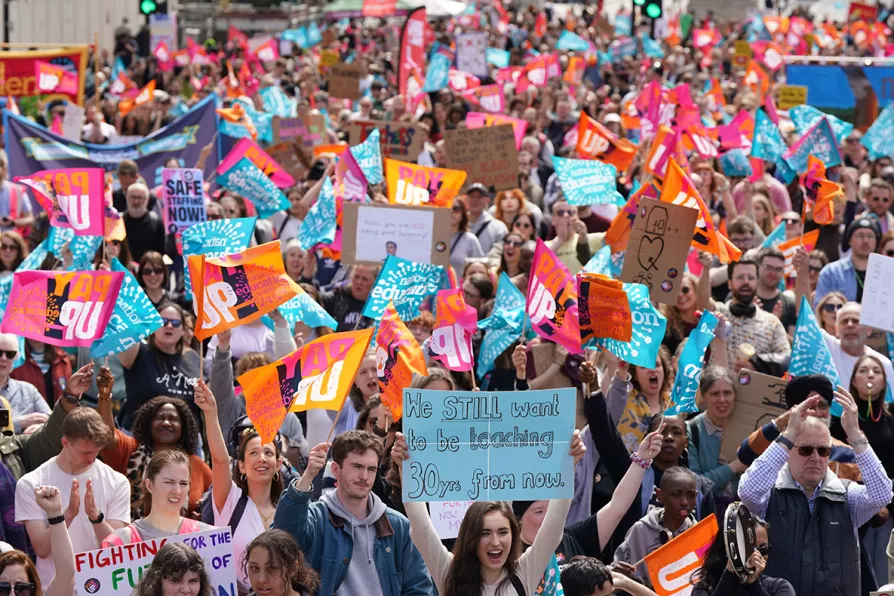Marco Rubio views 1945 as a defeat for the West, wants to revise the post-war order, while German ministers lead the standing ovation. SEVIM DAGDELEN reports

 People listen to Kevin Courtney, Joint General Secretary National Education Union (NEU) speaking at a rally in Westminster, London, as they stage walkouts across England in an ongoing dispute over pay, May 2, 2023
People listen to Kevin Courtney, Joint General Secretary National Education Union (NEU) speaking at a rally in Westminster, London, as they stage walkouts across England in an ongoing dispute over pay, May 2, 2023
THE British trade union movement is at a crossroads. We face a cost of living crisis that has deep roots in more than 40 years of neoliberal economic reform and the systematic weaknesses in the national economy that have developed as a result.
The decline of Britain’s manufacturing base, the stripping out of skilled, well-paid jobs, and the decimation and privatisation of public services and utilities has left our economy vulnerable to short-term fluctuations, which can have a long-term impact on working people’s incomes.
This has been realised most recently in a crisis which has seen the value of pay plummet. The governor of the Bank of England, earning £575,000 a year, has called on workers to exercise pay restraint as the cost of daily necessities goes up by a staggering amount. Food inflation in the 12 months to March 2023 was running at 19.2 per cent with items like cucumbers up by 52 per cent. In this context, pay restraint is the last thing our economy, or working people, need.

Since 2023, Strike Map has evolved from digital mapping at a national level to organising ‘mega pickets’ — we believe that mass solidarity with localised disputes prepares the ground for future national action, writes HENRY FOWLER

This ‘Big Meet’ our focus is building the next ‘Megapicket,’ say HENRY FOWLER and GAWAIN LITTLE of the General Federation of Trade Unions

Head of education, campaigns and organising for the General Federation of Trade Unions HENRY FOWLER explains why it is launching a fund to support trades councils and give them access to a new range of courses and resources










